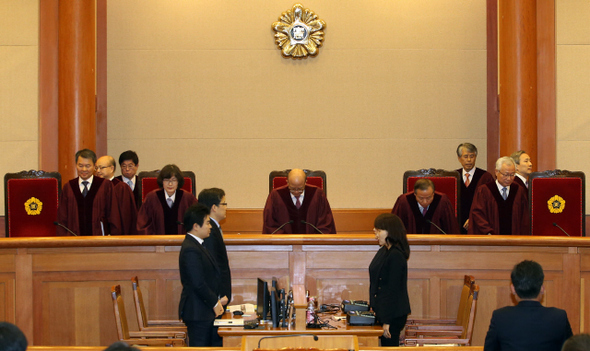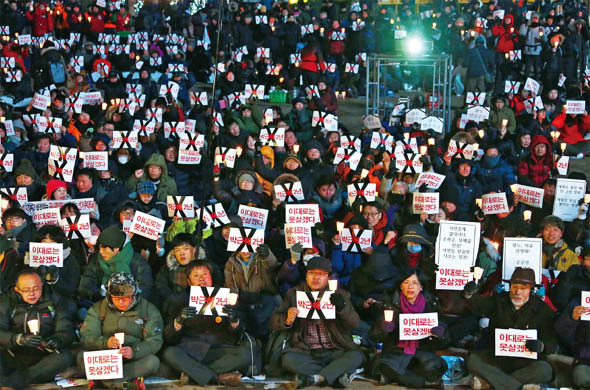 |
Constitutional Court President Park Han-chul (center) enters the court in Seoul’s Jongno district to preside over the final ruling in the disbandment of the Unified Progressive Party, Dec. 19. (pool photo)
|
The Constitutional Court ruled on Dec. 19 to disband the Unified Progressive Party. Lawmakers with the party were also stripped of their seats in the National Assembly. The decision was not based on any real evidence or definitive proof. It was a death sentence handed down on a small party for no other reason than that people didn’t like it. It was an utter repudiation of democracy, an institution founded on the core values of tolerance and diversity. Today, South Korea’s hard-won democratic system, the result of decades of struggle, now stands faced with the threat of disbandment and disintegration.
 |
Members of civic and labor organizations and the Unified Progressive Party hold a candlelight protest at Seoul Plaza outside City Hall on the second anniversary of President Park Geun-hye’s election, chanting slogans protesting her government’s destruction of democracy, suppression of labor and disbandment of the UPP, Dec. 19. The placards read, “I can’t live like this” and express disapproval of Park’s first two years in office. (by Lee Jeong-woo, staff photographer)
|



No comments:
Post a Comment